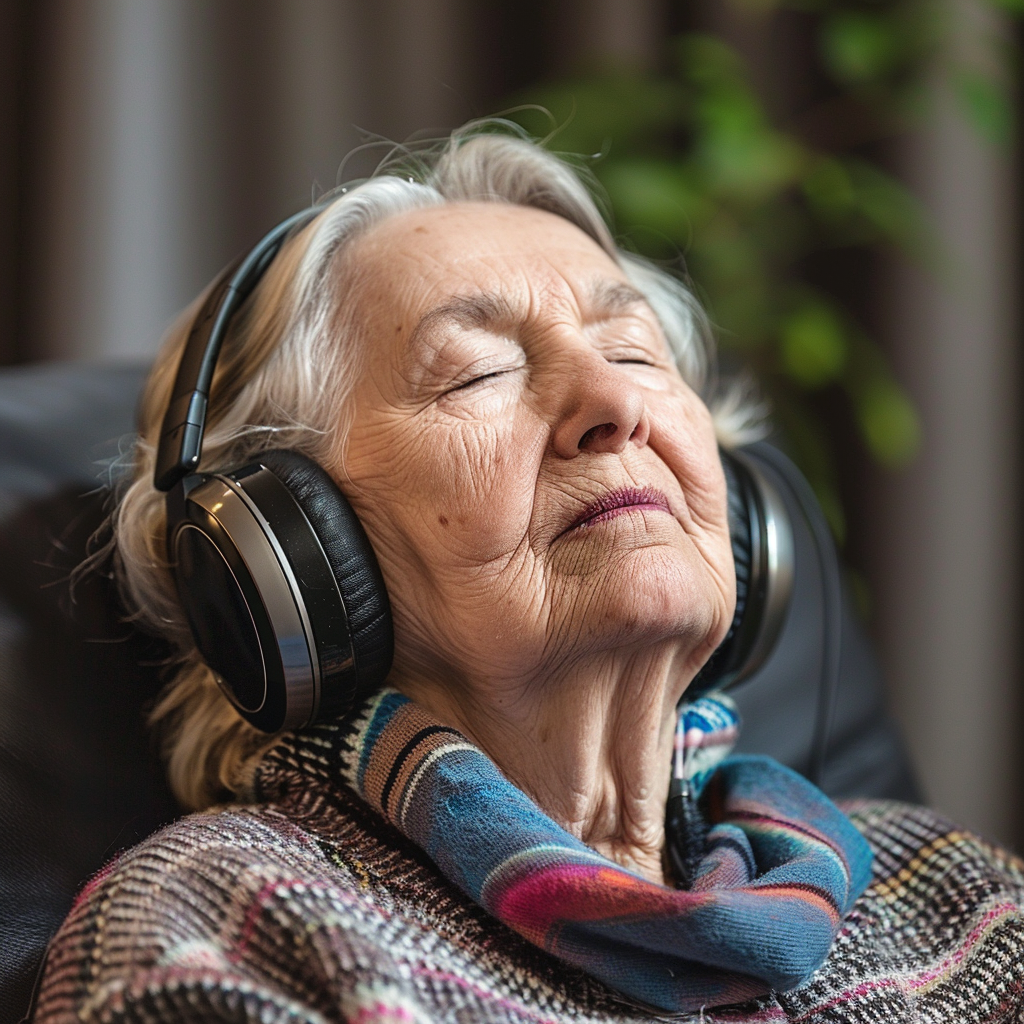Music therapy for memory has emerged as a transformative approach to enhancing cognitive functions among our residents. At our Delray Beach assisted living center, we’ve witnessed firsthand the profound impact that personalized music sessions can have on individuals facing memory challenges. This blog aims to explore the science behind music therapy and its benefits, sharing insights into how it positively influences recall abilities and emotional well-being within our community.
Table of Contents
- Understanding Music Therapy
- Benefits of Music Therapy for Memory
- Implementing Music Therapy in Our Assisted Living Center
Understanding Music Therapy
Definition and Overview of How It Works
Music therapy is a therapeutic approach that utilizes music to address the physical, emotional, cognitive, and social needs of individuals. At its core, it involves the clinical use of musical interventions—such as singing, playing instruments, or listening to music—to achieve specific goals within a therapeutic relationship by a credentialed professional who has completed an approved music therapy program. In the context of memory care, these interventions are carefully designed to stimulate cognitive functions and evoke memories in residents with varying degrees of memory loss.
The Connection Between Music, Emotions, and Memory
Research suggests that there’s a profound link between music and our emotions; melodies can elicit strong reactions often tied to specific events or periods in our lives. This connection plays a crucial role in memory recall for those living with conditions like dementia or Alzheimer’s disease. Familiar tunes can trigger past memories bringing them vividly back to life and providing comforting moments of joy in individuals navigating challenges associated with such illnesses. Thus, harnessing this unique power through tailored sessions becomes instrumental not only in improving overall quality of life but also in reconnecting parts of their identity that may seem to be lost in time.
Benefits of Music Therapy for Memory
Improving Recall Abilities
Music therapy has shown remarkable efficacy in enhancing the recall abilities of individuals with memory impairments. Familiar songs can serve as auditory cues, helping residents to access memories that are otherwise difficult to retrieve. This process not only aids in improving cognitive function but also contributes significantly to a resident’s sense of identity and personal history, reinforcing connections with their past experiences.
Reducing Symptoms of Dementia and Alzheimer’s Disease
For those living with dementia or Alzheimer’s disease, music therapy offers a non-pharmacological approach to managing symptoms. It has been observed that engaging in musical activities reduces agitation and improves behavioral issues common in such conditions. Furthermore, music therapy facilitates better communication skills and promotes higher levels of social interaction among residents, creating a more harmonious living environment.
Enhancing Emotional Well-being and Social Interaction
Beyond its cognitive benefits, music therapy plays an essential role in elevating the emotional well-being of assisted living residents. The shared experience of making or listening to music creates opportunities for meaningful social interactions—fostering friendships among residents by encouraging collaboration and participation. During these sessions feelings of isolation diminish while positive emotions like happiness and self-esteem receive a substantial boost. Ultimately, this contributes to a healthier and happier community atmosphere where every member feels valued and connected.
Implementing Music Therapy in Our Assisted Living Center
Tailored Programs to Meet Individual Needs
At our assisted living center, we understand that each resident has unique needs and preferences. That’s why our music therapy programs are meticulously designed to cater to the individual. By assessing residents’ musical backgrounds, preferences, and specific memory challenges, we create personalized sessions that resonate deeply with them. These tailored interventions might include listening to favorite songs from their youth, engaging in group sing-alongs of familiar tunes, or even learning new instruments as a means of cognitive stimulation and skill development.
Examples of Successful Interventions
One standout example involves a resident who had gradually withdrawn from social activities due to advancing dementia. Upon introducing her personalized music therapy program—centered around the jazz classics she loved—we observed a remarkable transformation; not only did her mood improve significantly but also her engagement with fellow residents and staff alike. Another case saw marked improvement in the communication skills of a non-verbal resident through rhythm percussion exercises. These instances, among many others, underscore the profound impact that music memory therapy can have on enhancing the quality of life within the community setting.
At Courtyard Gardens, we employ many techniques to keep our residents engaged and happy. These include culture and education, dining experiences, and a focus on health and nutrition. Contact us today for more information.


